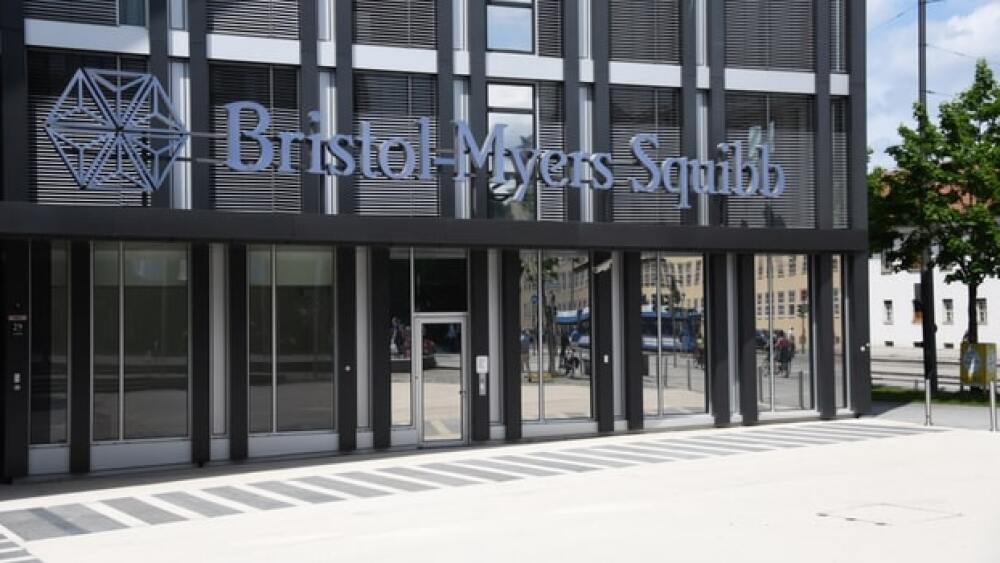The combination of Opdivo plus Yervoy in addition to chemotherapy demonstrated additional benefits in patient populations who usually have poor prognoses.
Bristol Myers Squibb (BMS) announced positive three-year data from its CheckMate -9LA clinical trial which is testing immunotherapy drugs Opdivo plus Yervoy in addition to chemotherapy to treat non-small cell lung cancer (NSCLC). In addition to showing positive benefits overall, the treatment demonstrated additional benefits in patient populations who usually have poor prognoses.
Opdivo is a checkpoint inhibitor that is already used to treat several different types of cancer. Yervoy is a recombinant human monoclonal antibody that binds to the cytotoxic T-lymphocyte-associated antigen-4 (CTLA-4). When Yervoy blocks CTLA-4, it encourages T-cell activation to help fight tumors.
The CheckMate -9LA trial is testing Opdivo (nivolumab) plus Yervoy (ipilimumab) with two cycles of chemotherapy compared to four cycles of chemotherapy in previously untreated patients with metastatic NSCLC. It is an open-label, global multi-center, randomized Phase III trial with the primary endpoint of overall survival in the intent-to-treat population. As secondary endpoints, the study also evaluated progression-free survival, overall response rate and efficacy measures based on biomarkers.
Over the course of three years, the overall survival rate was 27% for patients treated with Opdivo plus Yervoy with two cycles of chemotherapy alive compared to 19% for patients treated with chemotherapy alone.
Non-small cell lung cancer makes up approximately 84% of lung cancer diagnoses. Lung cancer overall is the leading cause of cancer deaths globally, and the five-year survival rate for metastatic NSCLC is just 6%.
The benefits of the treatment were even greater for patients with conditions that normally would have meant a poor prognosis. This would apply to patients with tumor PD-L1 expression of <1% who usually have a survival rate of around 15%. In this study, however, the overall survival rate for this population was 25%. Patients with squamous histology of their lung cancer had an overall survival rate of 11% with chemotherapy alone, but with chemotherapy in addition to the treatment of Opdivo and Yervoy, the overall survival rate went up to 24%. The study also showed improvements for patients with the STK11 tumor mutation.
“The sustained improvement in overall survival outcomes demonstrated by Opdivo plus Yervoy plus two cycles of chemotherapy in non-small cell lung cancer builds on the established evidence for Opdivo plus Yervoy to change survival outcomes across a broad range of advanced cancers. With this, in addition to recent progress in the earlier-stage disease, we’re seeing the full potential of Opdivo-based regimens to transform the lives of patients with thoracic cancers,” Abderrahim Oukessou, M.D., vice president, thoracic cancers development lead at BMS, said.
The combination of Opdivo and Yervoy is already being used in tandem with chemotherapy to treat other types of cancer. In May, the U.S. Food and Drug Administration approved Opdivo in combination with fluoropyrimidine- and platinum-containing chemotherapy and Opdivo plus Yervoy as a first-line treatment for adult patients with unresectable advanced or metastatic esophageal squamous cell carcinoma.
Combinations of Opdivo and Yervoy have also shown improvements in overall survival rate in Phase III clinical trials for several other types of tumors, including metastatic melanoma, advanced renal cell carcinoma and malignant pleural mesothelioma.
BMS is also working with Immatics on a combination treatment. In May, Immatics announced that the first patient was dosed with Immatics’ IMA203 TCR-engineered cell therapy in combination with Opdivo to treat solid tumors.
Featured Jobs on BioSpace





